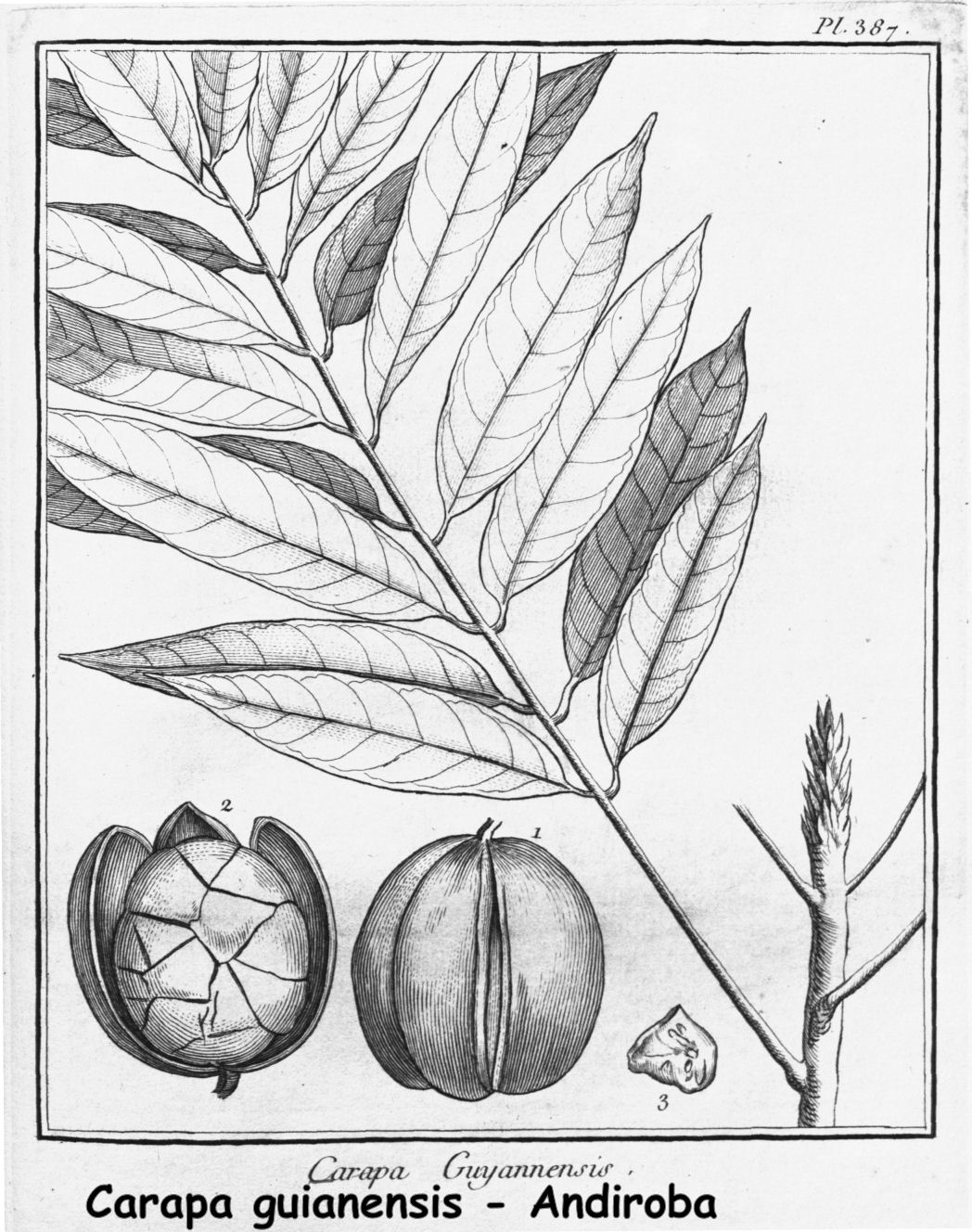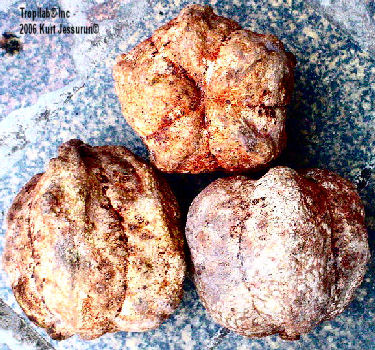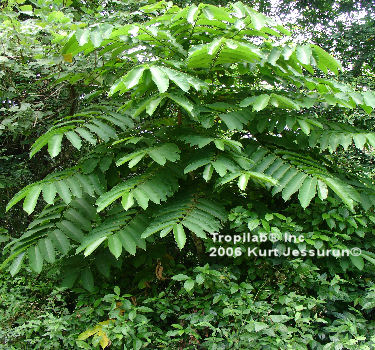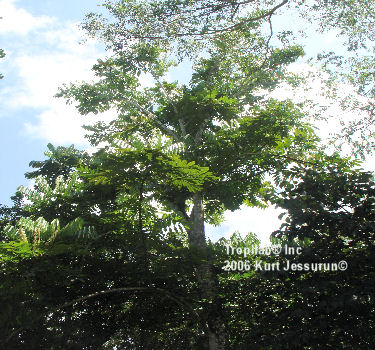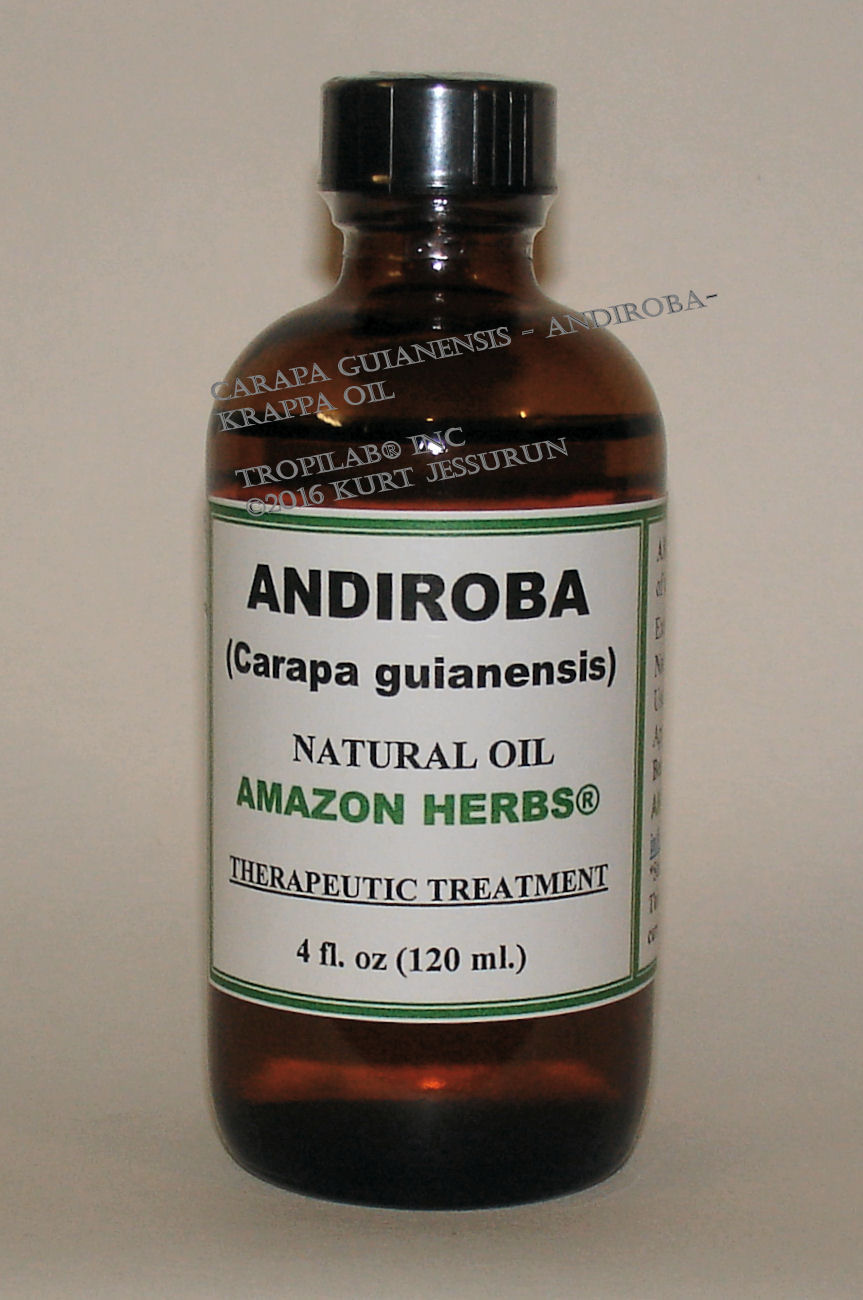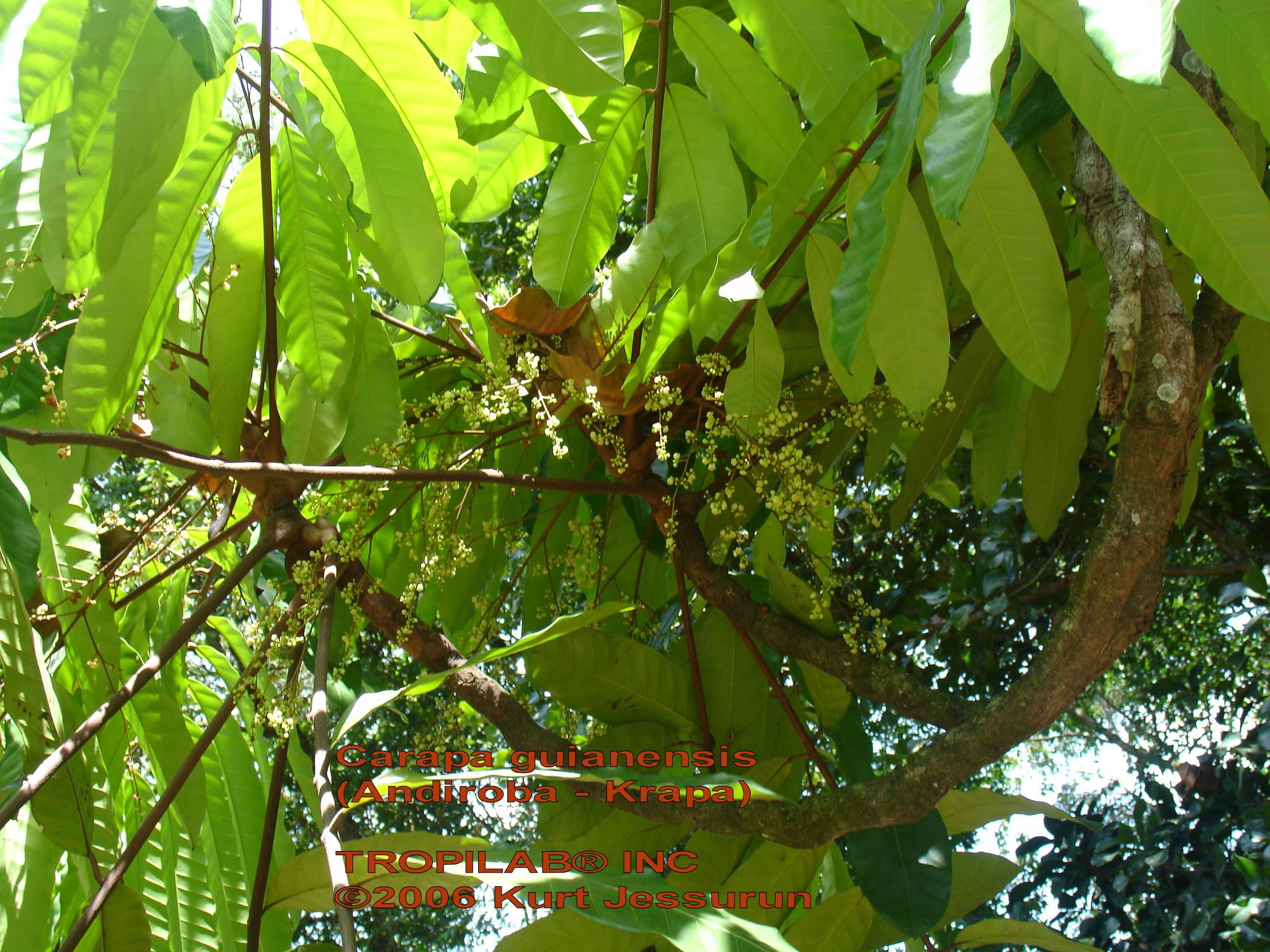CARAPA GUIANENSIS - ANDIROBA.
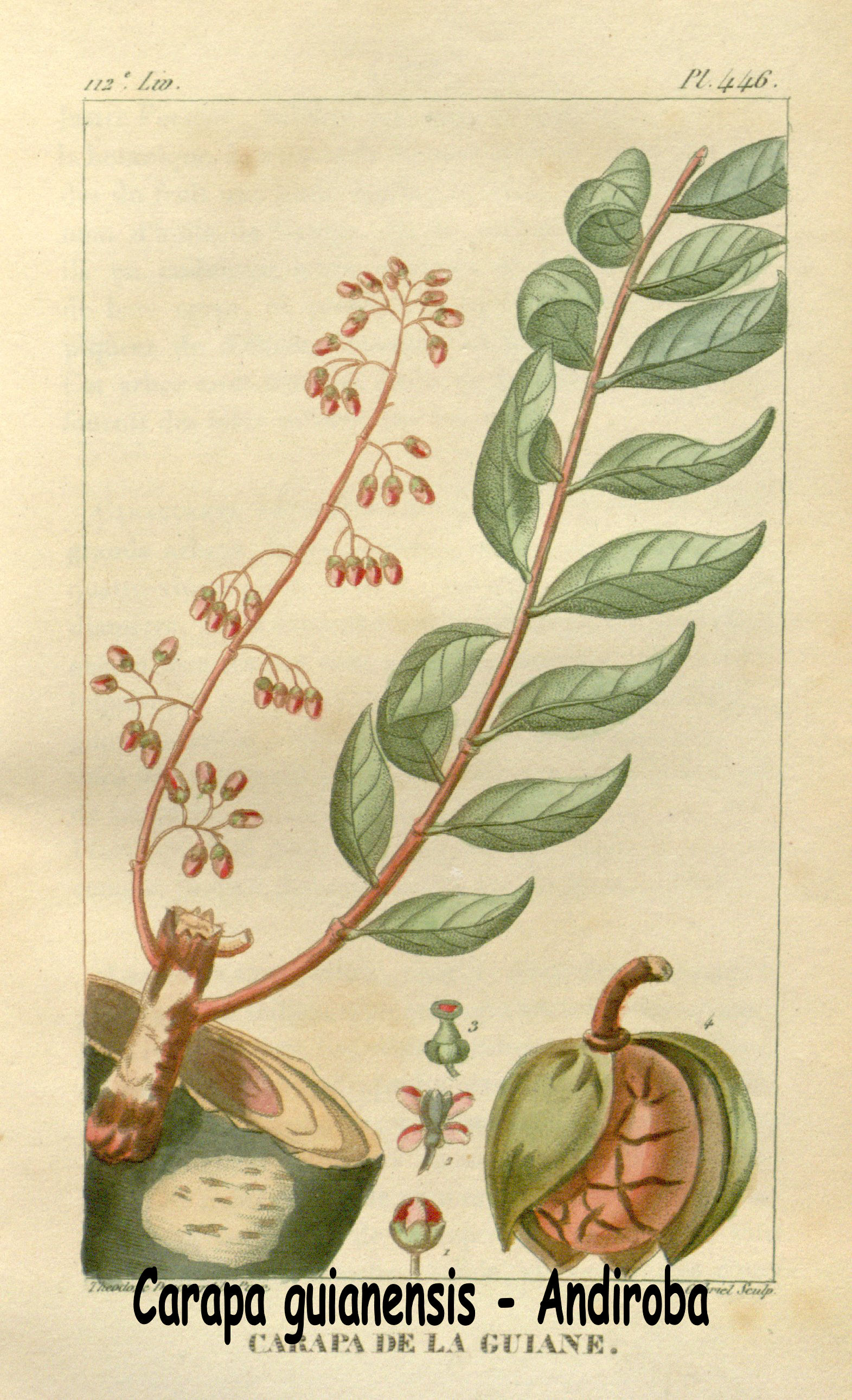 Common name
Common name
Andiroba, bastard mahogany, Brazilian mahogany, crabwood, krapa, figueroa, carapa.
Family
Meliaceae (Mahogany family).
Overview
Andiroba is a tall tropical tree, sometimes up to 120' tall, with fragrant
flowers; very common on rich soils; it grows abundantly in swamps in West-Suriname.
Andiroba is one of the largest leafed trees in the rain forest of South America.
The woody four cornered nut, has four cells each containing two to three seeds with oil - rich kernels. The nut yield is about 300 lbs. per tree/year.
The wood, hard and insect resistant, is used for furniture and as timber wood.
It is much sought-after by sawmills in Suriname and Guyana.
The bark, leaves and seed oil are used medicinally.
Andiroba oil can be used in cosmetic products as an active ingredient or as a carrier.
The oil which has anti-inflammatory properties, is rich in essential fatty acids and contains among others:
linoleic acid (9%), oleic acid: (50.5), linolenic acid: (0.3%).
Suriname's traditional medicine
Carapa guianensis is used against fever, diarrhea, rash and gout.
ANDIROBA OIL
Andiroba oil, from the cold pressed nut of the Carapa guianensis tree, is a
natural emollient; it can be used in cosmetic products, as an active ingredient or as a carrier.
Also used for treatment of cellulite and skin repair.
Traditionally it is used by the Amerindians to treat skin problems (rashes, boils and ulcers) and as an insect
repellant.
This oil accelerates healing of skin damage by providing myristic acid, one of the chemical building blocks that
form the skin's protective outer layer.
The oil, which has anti inflammatory properties, is rich in essential fatty acids, such as
omega-3 fatty acids, limonoids, triterpenes and contains among others: linoleic acid (9%), oleic acid: (50.5),
linolenic acid: (0.3%).Linoleic acid has shown to lower cholesterol levels and reduce elevated blood pressure.
Andiroba is an all-natural product, does not contain any preservatives and other chemicals. Andiroba oil can be
applied directly to the skin.
Hardiness
USDA zone 9 B - 11.
Propagation
Seeds.
Due to recalcitrant nature of the seeds, they have a short viable life. They can
not be dried well and can not withstand low temperatures.
Culture
Full sun, moist organic rich oil.
Plant in frost free locations.
Recalcitrant seeds are not refundable since they are prone to fungus and often difficult to germinate.
|


